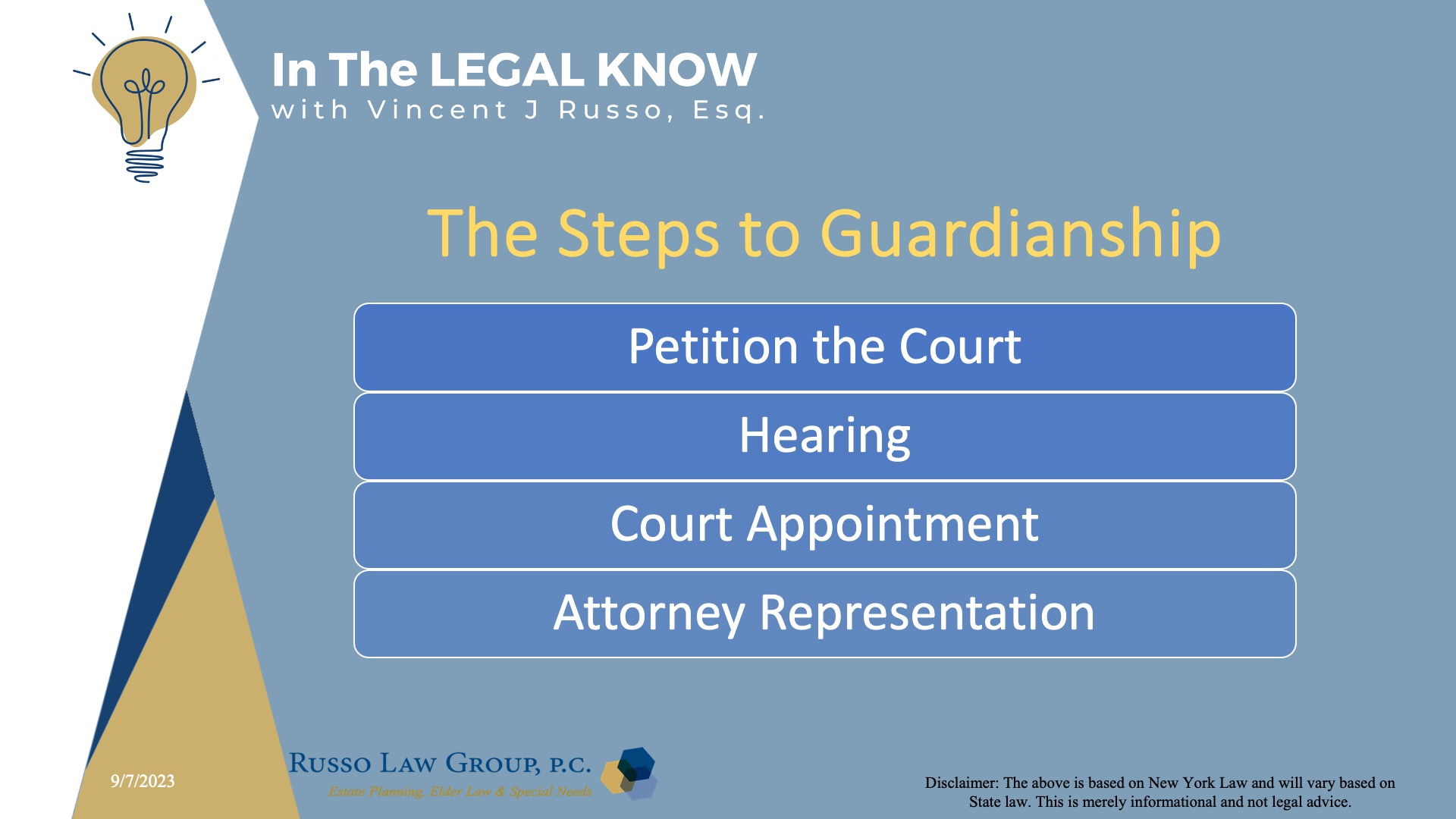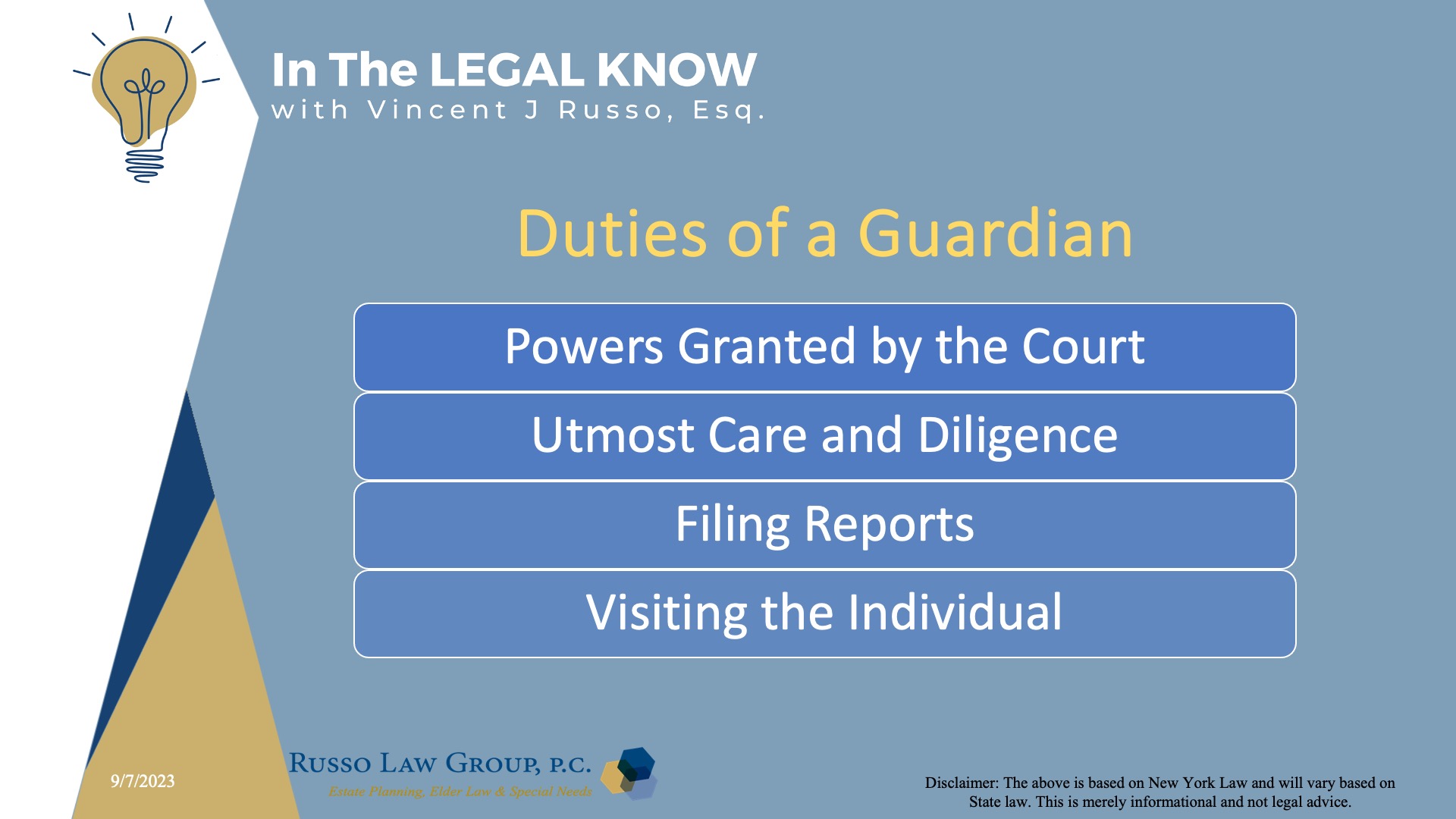This originally aired on the Catholic Faith Network’s show CFN Live: https://youtu.be/mUrGKFJ5NOE The Silver Tsunami…
This originally aired on the Catholic Faith Network’s show CFN Live: https://youtu.be/N5xOyg33e80
What happens to me if I can’t manage my affairs?
This is a common occurrence which is exacerbated when there has been no advance planning. When someone loses the ability to manage their own affairs – life becomes very challenging. The individual becomes lost, and their personal well-being is at stake, not to mention their finances.
What can be done?
A guardian can be appointed by a court. The guardian can be given the powers necessary to help the person manage his or her property and/or personal needs.
There are different types of guardianship proceedings depending upon State law, and the specific facts about the person who needs help will determine what type of guardianship proceeding is appropriate.
For today, we will be discussing guardianship for individuals who lack the ability to manage their own affairs. In New York this would be an Article 81 Proceeding under the Mental Hygiene Law and the proceeding would be brought in NY Supreme Court. Generally, Article 81 guardianships are used for the elderly who lack capacity.
Also, for individuals residing outside of New York who need this type of help, a guardianship proceeding in some states is referred to as a Conservatorship Proceeding.
How do you get guardianship?

An interested person, like a family member, can ask the court to appoint a guardian to manage the property and/or the personal needs of the person. The family member asking the court to appoint a guardian will need to show why the person needs a guardian and what powers the guardian will need to keep the person safe.
Depending on the type of guardianship proceeding, this can be done by providing testimony about the person’s functional limitations which can include medical evidence.
It is important for anyone who is seeking guardianship of another person to be represented by an attorney who has experience handling guardianship proceedings, who can guide them throughout the process.
How long does it take?
The process for attaining guardianship for someone who needs help begins with the submission of the initial request for the guardianship with the court, which is called the “petition,” and ultimately ends with the appointment of the guardian. This process can take several months and could potentially require multiple court appearances.
It is important to understand that there are significant responsibilities that the guardian will have once he or she is appointed, and their actions will be subject to court oversight.
This may seem like a lot of hoops to jump through, but oversight ensures the continued protection of the person who needs help.
Once a guardian is appointed, what are their duties?
For example, in New York, the duties of an Article 81 guardian in general are:
- The guardian shall exercise only those powers authorized by the court order;
- A guardian must exercise utmost care and diligence when acting for the benefit of the Alleged Incapacitated person (AIP);
- A guardian must exhibit the utmost degree of trust, loyalty and fidelity to the AIP;
- A guardian must file initial, annual reports and final reports;
- A guardian must visit the AIP at least 4 times a year or more as specified in the court order.
When it comes to the powers granted by the Court, the powers can be very broad or limited. They may include paying bills, banking, managing finances, signing and filing tax returns, Medicaid planning.
When is Guardianship necessary?
This type of guardianship is especially necessary if an individual lacks capacity and does not have a Power of Attorney or a Health Care Proxy document.
If an individual does have a Power of Attorney but the agent under the Power of Attorney has taken money from the person for their own use and the person now lacks capacity to sign a new Power of Attorney document, a guardianship will be necessary to revoke the Power of Attorney and have someone else appointed to oversee the person’s financial affairs.
For more information, download our complimentary Guardianship Guide HERE.
We hope you found this article helpful. Contact our office today at 1 (800) 680-1717 and schedule an appointment to discuss what makes sense for you and your loved ones.





Comments (0)